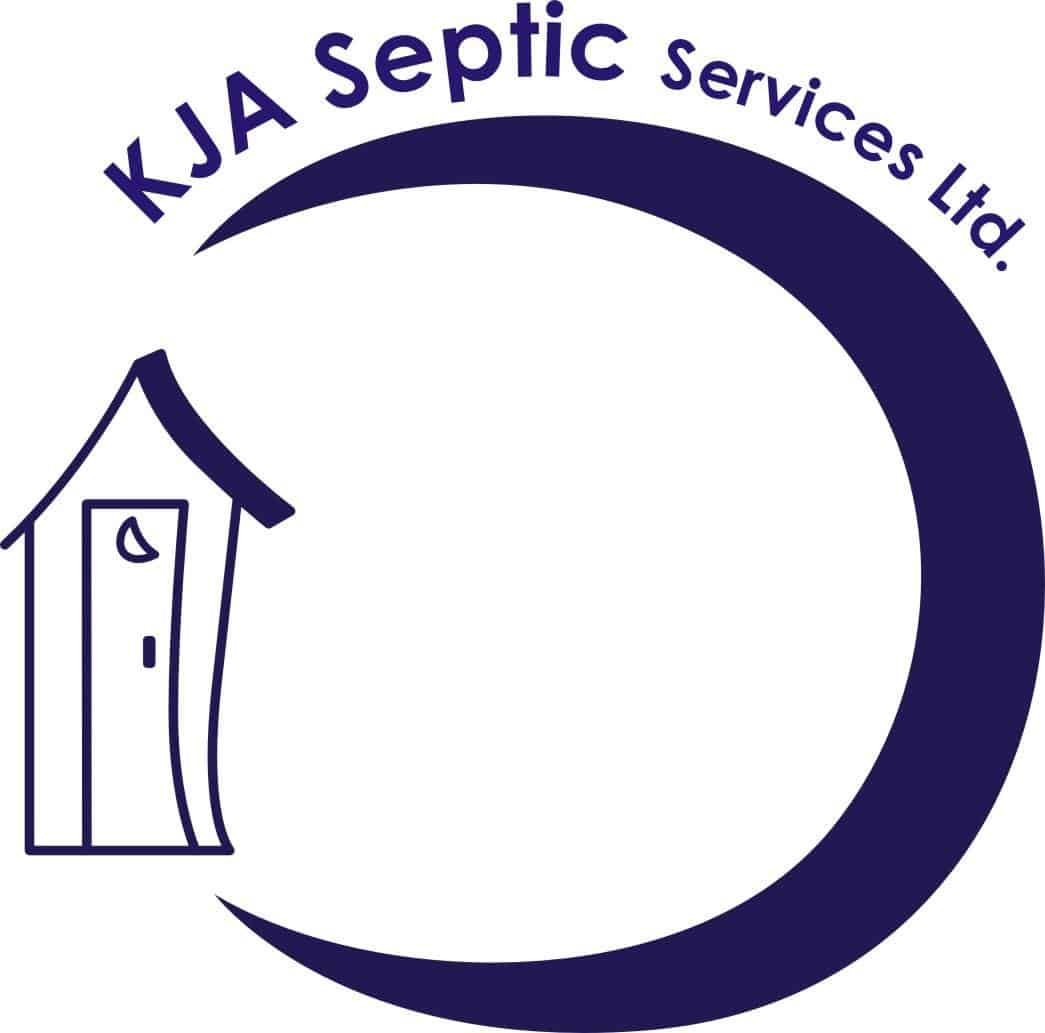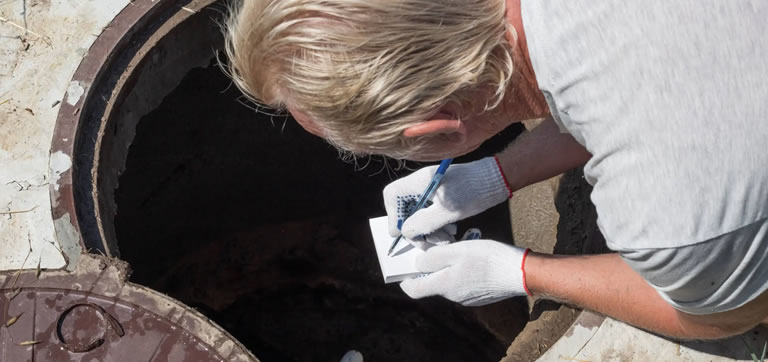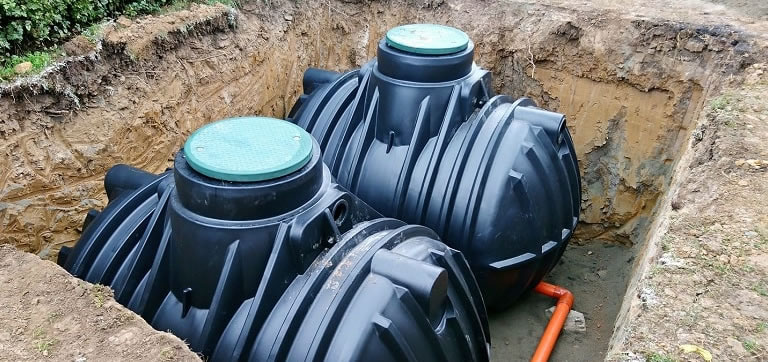Water Well Tests And Septic Inspection
Well tests and septic inspections are crucial components of a property examination, providing vital insights into the quality of a property’s water source and wastewater disposal system. Well tests involve analyzing the quality and quantity of water in a property’s well, ensuring that it is safe for consumption. On the other hand, septic inspections focus on the proper functioning of a property’s septic system, identifying any potential issues that may lead to environmental contamination or health hazards. Both tests are essential for maintaining a healthy and safe living environment, making them important considerations for homeowners and property buyers alike.
Exploring the Importance of Well Tests & Septic Inspections
-
Protecting Your Health:
Well tests and septic inspections are crucial for safeguarding your health and the health of your loved ones. Contaminated water sources can lead to various illnesses, making regular evaluations essential.
-
Preserving Property Value:
Regular well tests and septic inspections can help maintain the value of your property. Potential issues identified early can be addressed promptly, preventing costly repairs in the future.
-
Compliance with Regulations:
Many jurisdictions require periodic well tests and septic inspections to ensure compliance with health and environmental regulations. Failing to adhere to these regulations can result in fines and legal consequences.
-
Detecting Hidden Problems:
Well tests and septic inspections can reveal underlying issues that may not be immediately apparent. Identifying leaks, blockages, or contamination early on can prevent extensive damage and costly repairs.
-
Ensuring Water Quality:
Well tests assess the quality of your water supply, checking for contaminants such as bacteria, nitrates, or chemicals. Regular monitoring helps ensure that your water is safe for consumption and other daily uses.
-
Maintaining System Efficiency:
Septic inspections evaluate the condition of your septic system, ensuring that it operates efficiently. Routine maintenance can extend the lifespan of your system and prevent backups or overflows.
-
Peace of Mind:
By conducting regular well tests and septic inspections, homeowners can have peace of mind knowing that their water supply is safe and their sewage system is functioning properly. This proactive approach can alleviate concerns and promote overall well-being.
In conclusion, prioritizing well tests and septic inspections is not only a matter of compliance but also a fundamental step towards protecting your health, property, and peace of mind. Regular evaluations can help identify issues early, preserve property value, and ensure the efficient operation of essential systems. Make these inspections a part of your maintenance routine to reap the benefits of a safe and healthy living environment.
How-To Guide: Well Tests & Septic Inspections
When it comes to maintaining your property’s water and sewage systems, conducting regular well tests and septic inspections are crucial steps to ensure proper functionality and prevent potential issues.
FAQ About Well Tests & Septic Inspections
- What is a well test? A well test is a comprehensive evaluation of a property’s well water system to assess the quantity, quality, and flow rate of the water. It helps to identify any potential issues with the well, such as low water pressure or contamination.
- Why should I conduct a well test? Conducting a well test is essential to ensure the safety and reliability of your drinking water. It can detect contaminants that may be harmful to your health and identify any problems with the well that need to be addressed.
- How often should I conduct a well test? It is recommended to conduct a well test at least once a year to monitor the water quality and identify any changes or issues that may arise. Additionally, a well test should be conducted before purchasing a property with a well.
- What is a septic inspection? A septic inspection is an assessment of the septic system on a property to determine its functionality and condition. It involves inspecting the tank, drainfield, and other components to ensure they are working properly.
- Why is a septic inspection important? A septic inspection is crucial to prevent septic system failure, which can lead to costly repairs and potential health hazards. It helps to identify any issues with the system early on and ensure it is operating efficiently.
- When should I schedule a septic inspection? A septic inspection should be scheduled regularly, typically every 3 to 5 years, to ensure the system is functioning properly and to address any potential problems before they escalate. It is also recommended to inspect the septic system before buying or selling a property.
- What are the signs that I need a well test or septic inspection? Signs that indicate the need for a well test include changes in water taste, odor, or appearance, low water pressure, and water-borne illnesses. Signs that suggest a septic inspection is needed include slow draining sinks, toilets, or foul odors near the septic system area.
- How long does a well test and septic inspection take? The duration of a well test and septic inspection can vary depending on the size of the property and the complexity of the systems. On average, a well test can take a few hours, while a septic inspection may take between 1 to 2 hours.
Remember, conducting regular well tests and septic inspections is crucial for maintaining a safe and healthy living environment. If you have any specific concerns or questions, it is advisable to consult with a professional well and septic system inspector.
Importance of Well Tests & Septic Inspections
Well tests and septic inspections are crucial aspects of maintaining a safe and healthy living environment. Well tests help ensure the quality of the water supply, checking for contaminants that could pose serious health risks. Regular well tests also prevent the spread of waterborne diseases and provide early detection of any issues that may affect the water quality. On the other hand, septic inspections are vital for identifying any leaks or damages in the septic system, preventing sewage backups and contamination of the soil and groundwater. By conducting these inspections regularly, homeowners can protect their health and the environment, ensuring the longevity of their water supply and septic system.
When it comes to ensuring the functionality and safety of a property’s septic system, well tests and septic inspections are crucial services to consider. Well tests aim to evaluate the quality of the water supply by analyzing its composition and identifying any contaminants present. On the other hand, septic inspections focus on assessing the overall condition of the septic system and drain field to prevent potential issues such as leaks or backups. Both services play a vital role in maintaining the health and efficiency of a property’s water and wastewater systems.
How To Guide: Well Tests & Septic Inspections Services
When it comes to maintaining the overall health and functionality of your property, conducting well tests and septic inspections is crucial. These tests help ensure the safety of your water supply and the proper functioning of your septic system. Here’s a comprehensive guide on how to go about these essential services:
Why Are Well Tests and Septic Inspections Important?
-
Well Tests:
Well tests are essential to determine the quality of your water supply. They help identify any contaminants that may be present, ensuring the safety of your drinking water.
-
Septic Inspections:
Septic inspections are vital to ensure that your septic system is working correctly. Regular inspections help prevent costly repairs and environmental contamination.
Steps to Conduct Well Tests:
-
Hire a Professional:
It’s recommended to hire a certified water testing professional to conduct the tests. They will collect water samples and send them to a laboratory for analysis.
-
Types of Tests:
Common well tests include testing for bacteria, nitrates, pH levels, and other contaminants based on your location and specific concerns.
-
Interpreting Results:
Once the results are back, the professional will interpret them and advise on any necessary actions like installing water treatment systems if contaminants are detected.
Steps for Septic Inspections:
-
Schedule Regular Inspections:
It’s recommended to have your septic system inspected every 1-3 years by a qualified septic inspector.
-
Visual Inspection:
The inspector will visually examine the septic system and drain field for any signs of leaks, blockages, or damage.
-
Pumping:
Regular pumping of the septic system is essential to prevent buildup and maintain proper functioning.
-
Maintenance Recommendations:
Based on the inspection findings, the inspector may provide recommendations for repairs or maintenance to keep your septic system in good working condition.
Conclusion:
By following these steps and conducting regular well tests and septic inspections, you can ensure the safety of your water supply and the longevity of your septic system. Investing in these services is a proactive approach to property maintenance that can save you money in the long run and protect the health of your family and the environment.





